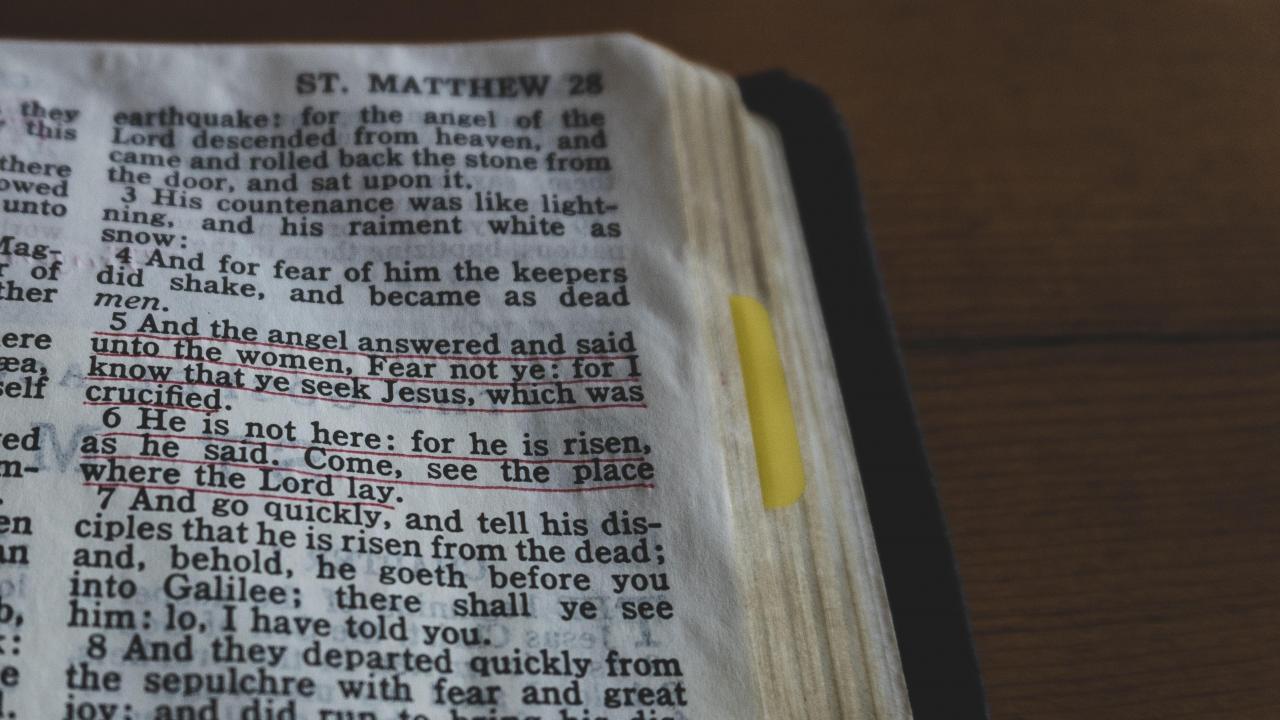Featured
David, Saul, And How We Respond To Broken Leadership
| | General Articles, Politics | 0 commentsWhen we think about David and Saul, we often focus on David’s rise to kingship or his battle with Goliath. But hidden within that story is a deep lesson for today’s generation about leadership, resistance, and the power of revolutionary love. At a recent youth training event (thanks to South West Youth Ministries), I was asked how I would present the story of David and Saul to a Christian teenage youth group. My mind turned to the politics of their relationship, and how David accepted Saul’s leadership, even when Saul had gone badly astray. David recognised that Saul was still God’s anointed king — placed there by God Himself — and that it was not David’s place to violently remove him. Gen-Z are more politically aware and engaged than previous generations, and are growing up in a world where politics, leadership, and social issues seem impossible to escape. We live in a world where political leaders — whether Trump, Putin, Starmer, or others — are often seen as examples of failed leadership. It’s easy to slip into bitterness, cynicism, or violent rhetoric. These kids are immersed in a culture of activism and outrage. As Christians, we’re called to care deeply about truth and justice and approach leadership differently from the world around us (Hosea 6:6; Isaiah 1:17; Micah 6:8). The story of David and Saul offers pertinent lessons for our modern lives. Respect Without Endorsement David’s respect for Saul was not blind loyalty. He did not agree with Saul’s actions, nor did he ignore Saul’s evil. David fled from Saul’s violence; he challenged Saul’s paranoia; he even cut the corner of Saul’s robe to prove he had the chance to kill him but chose not to. Yet throughout, David refused to take matters into his own hands by force. Why? Because David understood that even flawed authority ultimately rested in God’s hands, he trusted that God would remove Saul at the right time. This is echoed later in the New Testament when Paul writes in Romans 13 that “there is no authority except from God, and those authorities that exist have been instituted by God”, something even Jesus reminded Pilate of during his trial (John 19:10–11). In other words, even flawed leadership can be part of God’s bigger plan, whether for blessing or discipline. Even when leaders go bad, our call as believers is to maintain integrity, respect the position, and resist evil through righteousness — not rebellion. David and Saul: A Lesson in Respect and Restraint Saul was Israel’s first king — anointed by God but later corrupted by pride, fear, and violence. David, chosen to succeed him, spent years running for his life from Saul’s jealous rage. One day, David found Saul alone and vulnerable in a cave. His men urged him to strike Saul down and end the conflict. But David refused: “I will not raise my hand against my lord; for he is the Lord’s anointed.” (1 Samuel 24:10) Instead of killing Saul, David cut off a piece of his robe to prove he could have harmed him, but didn’t. In doing so, he demonstrated a real form of nonviolent resistance. He stood firm against Saul’s injustice without resorting to injustice himself, and acted in a way that could try to humble Saul instead. Peacemaking Is Not Passivity There is a modern misconception that peacemaking means doing nothing and just letting injustice roll all over us. But true biblical peacemaking is not passive; it actively resists evil without becoming evil. Interestingly, David’s actions toward Saul also foreshadow the type of nonviolent resistance Jesus later taught. When Jesus commanded His followers to turn the other cheek, go the extra mile, and love their enemies, he was not calling for passive submission but offering what scholar Walter Wink describes as a “third way” — a bold, peaceful form of resistance that uses what he calls “moral jiu-jitsu” to expose injustice without resorting to violenc...
Coffee With Jesus: Luke 24
| | Coffee With Jesus, Devotional | 0 commentsBrief thoughts from daily devotions The road to Emmaus. A familiar story from the Gospel to many, though today as I read it, I noticed some things which I probably glossed over in previous times. At the start of this chapter we see that some of the women who followed Jesus had gone to the tomb with spices to prepare the body of Jesus, and yet were met with a few surprises: an open, empty tomb and some angels! They ran back to the group of apostles and other disciples to tell the exciting news,...
Coffee With Jesus: Luke 22–23
| | Coffee With Jesus, Devotional | 0 commentsBrief Thoughts From Daily Devotions I’m going to start a new infrequent sub-series called “Coffee with Jesus”, which will be short blogs based on whatever I’m currently reading in the Bible during my morning devotions (as I drink my coffee, hence the name). They won’t necessarily be in any specific order, unless something particularly strikes me each day as I’m reading through a book of the Bible. Today’s observation comes from Luke 22–23 concerning the Last Supper and the cruc...
The Deity of Christ in the Gospel of Matthew - Part 2
| | Guest Posts, Apologetics | 0 commentsMatthew's theme - The divine presence of Jesus This is a guest post by “KingsServant”, see Part 1 here. Having covered Matthew’s introduction to his gospel in his nativity account, we will now consider the way Matthew “bookends” the gospel by beginning his work with the promise of God dwelling with his people (fulfilled in the incarnation) and ending it in the same way with Jesus’ comforting promise never to leave his followers. This theme of Matthew begins with his quotation ...
The Deity of Christ in the Gospel of Matthew - Part 1
| | Guest Posts, Apologetics | 0 commentsThe titles “Jehovah” and “God” given to Jesus in Matthew 1 This is a guest post by “KingsServant”, see Part 2 here. In this series of articles, I want to present the case that Matthew teaches Jesus is God, from the arguments I made in 2 moderated debates with a Muslim apologist, Mohammed Abd al Razack, commonly known as Al Yemeni. Although I will be going into far more detail, not having to deal with the tight time controls of a debate format. The moderated debate on YouTube wit...
26 Differences Between Muhammad and Jesus
| | Apologetics, Islam | 2 commentsIf you’ve ever spent any time online, either in random Facebook comment threads or reading the news, I’m sure you’ve come across the claim that Islam and Christianity are basically the same and that “we all worship the same God”, getting lumped together as an “Abrahamic religion” along with Judaism. Muslims claim Islam “is the completed final version of the previous messages originally revealed to Moses and Jesus” which came to “correct the deviations of Christianity”, whi...





